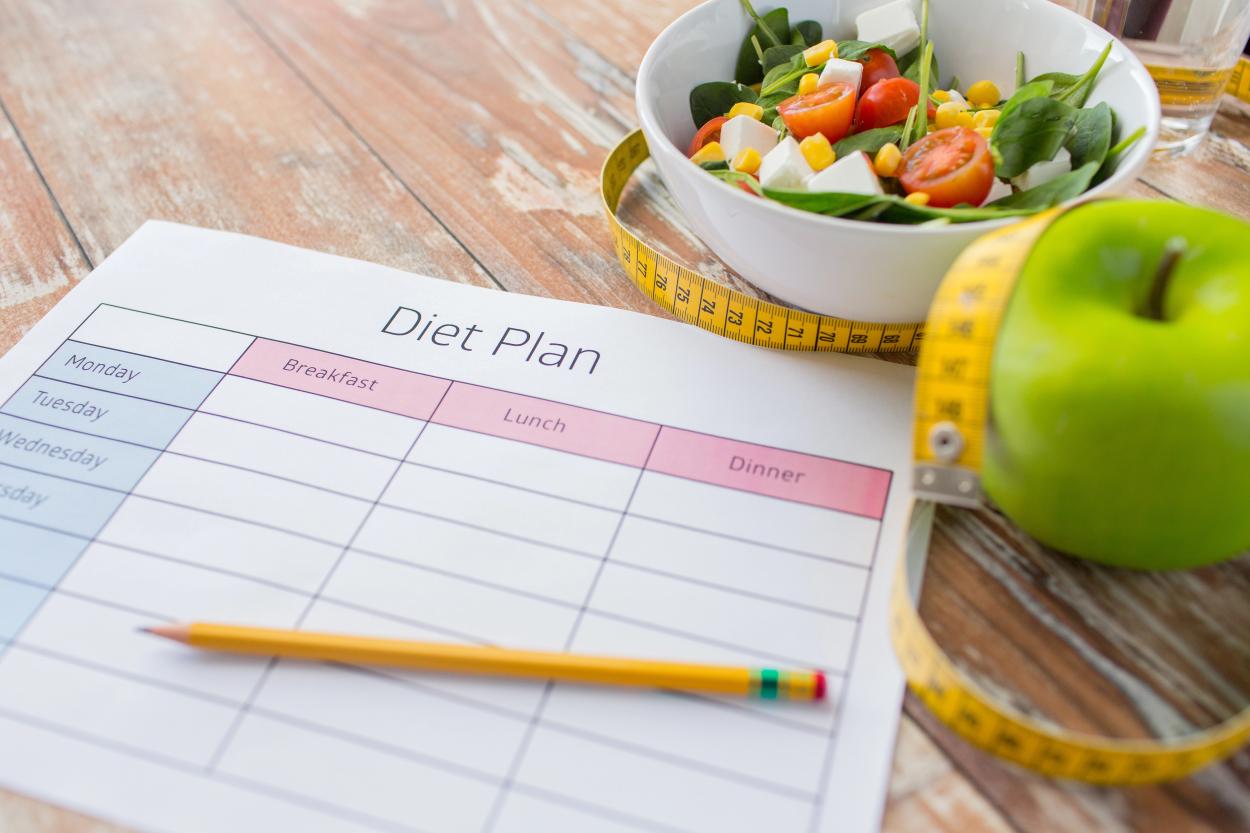By the end of the sixth week following your sleeve gastrectomy operation, you should be able to eat foods of a more normal consistency, without worrying about the "soft foods" restriction. However, as with previous phases of your recovery diet, it is important not to rush this step; you should only progress to this stage of your diet plan if you tolerated soft food well.
Remember the lessons learned
It is important during this phase to remember the lessons you have learned previously:
- Eat three meals a day on a regular basis. Do not skip breakfast or other meals. Each meal should be nutritionally balanced and contain sufficient protein.
- Choose small portions, and take tiny bites, chewing each bite thoroughly before swallowing it. Stop eating when you are full.
- Focus on healthy, balanced meals. This is the phase of your diet in which you are establishing the eating habits that you will follow for the rest of your life and that will enable you to end your obesity.
- Continue to drink lots of liquids. In general, it is still a good idea to not drink with meals; however, during the day, try to consume at least 1-1.5 litres of approved beverages.
- Nutritional supplements. Keep taking the daily vitamin supplements as before e.g. Centrum or Nutrichew.
- Avoid between-meal snacking. Small snacks as detailed below are OK, but eating constantly during the day is one of the habits you want to get over, not perpetuate.
- Get enough exercise. Balance your new healthier eating habits with healthy exercise.
Leave your old habits
Your Sleeve Gastrectomy surgery is permanent, so leave your old, unhealthy eating habits behind
The first year following Sleeve Gastronomy surgery is critical. The operation is permanent, but its success in achieving long-term weight loss goals can be sabotaged by holding on to old lifestyle habits such as constant snacking or "grazing," poorly balanced meals, lack of exercise, and poor food choices such as fast foods, alcohol, and sweets. This is your opportunity to start over and establish new healthy eating habits. You have the opportunity in this phase of your post-surgery diet plan to redesign your whole approach to eating. Foods that are ideal for this phase of your diet include:
- Protein – (2 servings a day) lean meats, chicken, fish, eggs, or legumes to keep your protein intake high so that weight loss does not cause muscle loss.
- Fruits and Vegetables – (2 servings a day) almost any vegetables, prepared steamed, boiled, broiled, or stir-fried with minimal added oils or butter.
- Milk and dairy products – (3 servings a day) skim or low-fat milk (max. 250 ml/day); cottage cheese, ricotta cheese, or low-fat cheese slices (max. 30 g/day) or low-fat yoghurt (max. 200 g/day).
- Breads and cereals – (3 servings a day) Look for high fibre and low sugar content, avoiding soft, doughy breads that expand in the stomach; low-fat crackers, multigrain breads, rice, pasta, noodles, Weetabix, or porridge.
- Fats – (maximum 2 teaspoons per day) olive oil, low-fat cooking spray, polyunsaturated or monounsaturated margarines; no butter or heavy oils.
Foods you should avoid
In this new "the rest of your life" diet, there are certain foods and drinks you should say goodbye to forever, either because they are bad matches for the size and sensitivity of your new, smaller stomach or because they are bad for your health and weight loss goals.
- Avoid alcoholic drinks and any sugar-sweetened teas, coffees, or soft drinks.
- Try to avoid fresh, doughy breads and carbohydrates (because they swell in the stomach).
- Avoid sugar and sweets such as ice cream, milkshakes, chocolate, flavoured milks, pastries, cakes, biscuits, and lollies.
- Try to avoid the use of oils in cooking, and avoid deep-fried foods.
- Stay away from fast food and commercial snack foods.
Instead, concentrate on developing protein-rich, balanced meals made from fresh foods whenever possible (as opposed to canned or pre-prepared). Remember when selecting and preparing these foods that your original goal in having the Sleeve Gastrectomy operation was to lose weight and end your obesity forever.
We recommend that you keep a journal of your dietary choices during this first year after surgery so that you can review it with Dr. Zarrouk and the dietitian and relate those choices to the speed of your weight loss. The sleeve gastrecotmy operation will help by limiting the amount of food you can eat and that you need to feel full and satisfied. However, your weight loss process can go faster by making wise, healthier choices in the types and amounts of foods you do eat.
This is literally your opportunity for a new start in life. Good luck, and do not hesitate to contact us at any time if we may be of assistance.










